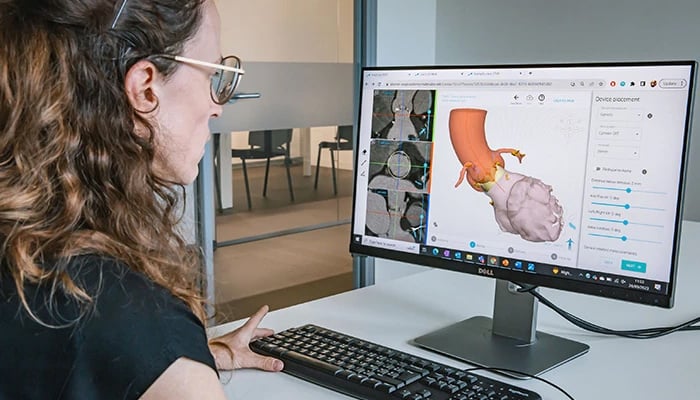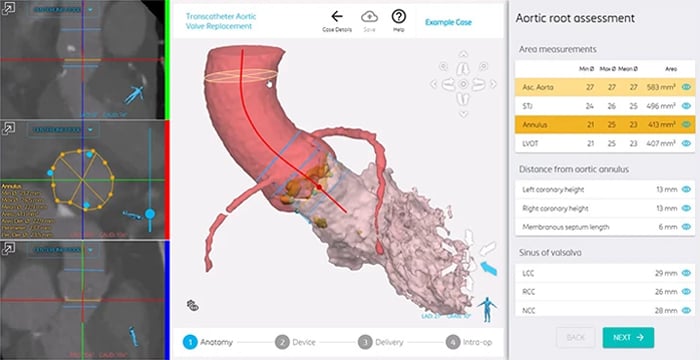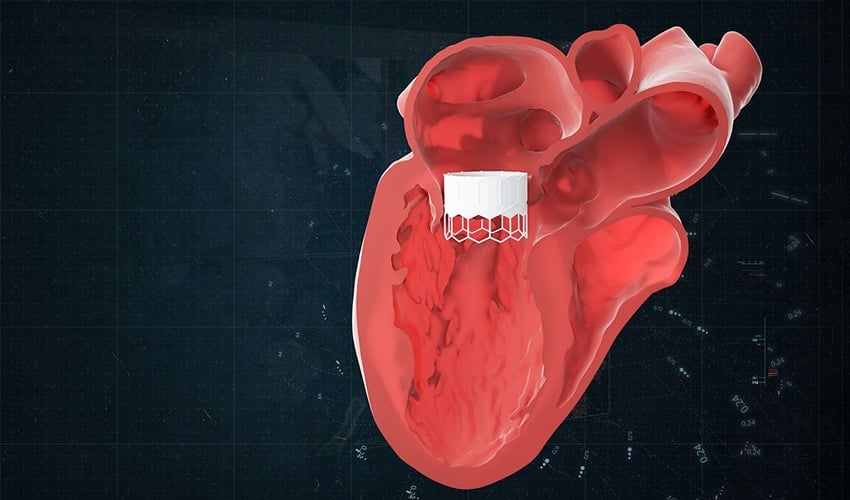Materialise, a global leader in 3D printing software and services, has acquired FEops, a Belgian company specializing in AI (artificial intelligence)-driven simulation technology. FEops’ solution enables improved capacity, efficiency and clinical outcomes for structural cardiac interventions. Although the amount of the transaction was not disclosed, this acquisition will enable Materialise to expand its cardiovascular solutions by integrating predictive simulation capabilities, promoting personalized treatment for patients with heart disease.
The use of 3D technologies is revolutionizing healthcare by enabling mass customization of treatment plans and interventions, tailored to the unique anatomy of each patient. In particular, structural heart disease, such as valvular heart disease, is a significant medical and economic challenge, being one of the leading causes of cardiovascular mortality worldwide. Currently, 47 million people suffer from valvular heart disease, and by 2030 the costs associated with these problems are expected to reach $70 billion per year globally. By combining simulation software, AI and 3D planning technologies, Materialise now expects to expand its capabilities to address this growing challenge.

Materialise notes that this AI-driven simulation software will help improve cardiovascular outcomes
Materialise Turns to AI
One of the activities carried out by Materialise is the mass customization of healthcare by creating 3D virtual models based on medical images for pre-procedure planning. Now, the integration of FEops technology with Mimics Planner, Materialise’s software, will offer a comprehensive solution for anatomy-based 3D planning and AI simulation. Brigitte de Vet, CEO of Materialise, highlighted the importance of this union, noting, “By integrating FEops’ advanced predictive simulation technology with our Mimics Planner, we are expanding our cardiovascular solutions to provide clinicians with comprehensive insights into patient anatomy. This integration will not only enhance the accuracy and efficiency of structural heart interventions but also improve clinical outcomes and patient safety.”
FEops’ predictive simulation technology will enable physicians to more accurately predict the interaction of cardiac devices with patient anatomy, a crucial capability for transcatheter procedures, which have increased in popularity and application in recent years. However, assessing patient suitability and potential risks remains a challenge. Advanced visualization and simulation technologies are improving clinical workflow, making these procedures accessible to a wider variety of patients and improving overall outcomes. More information about this acquisition can be found on the Materialise website here.

A closer look at how the simulation works
What do you think of this AI simulation software that was acquired by Materialise? Do you think it will be useful for cardiovascular applications? Let us know in a comment below or on our LinkedIn, Facebook, and Twitter pages! Don’t forget to sign up for our free weekly newsletter here for the latest 3D printing news straight to your inbox! You can also find all our videos on our YouTube channel.
*All Photo Credits: Materialise



